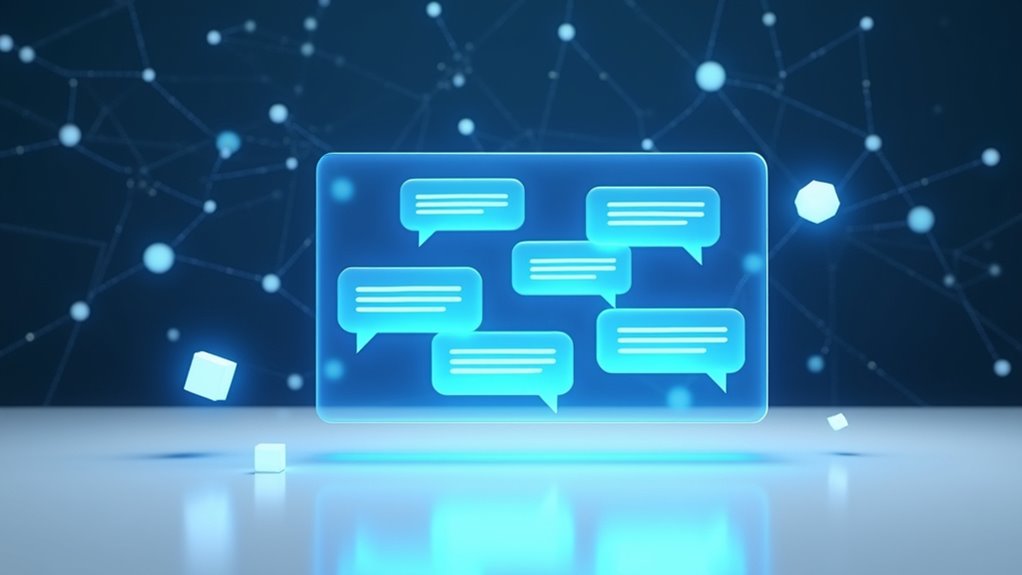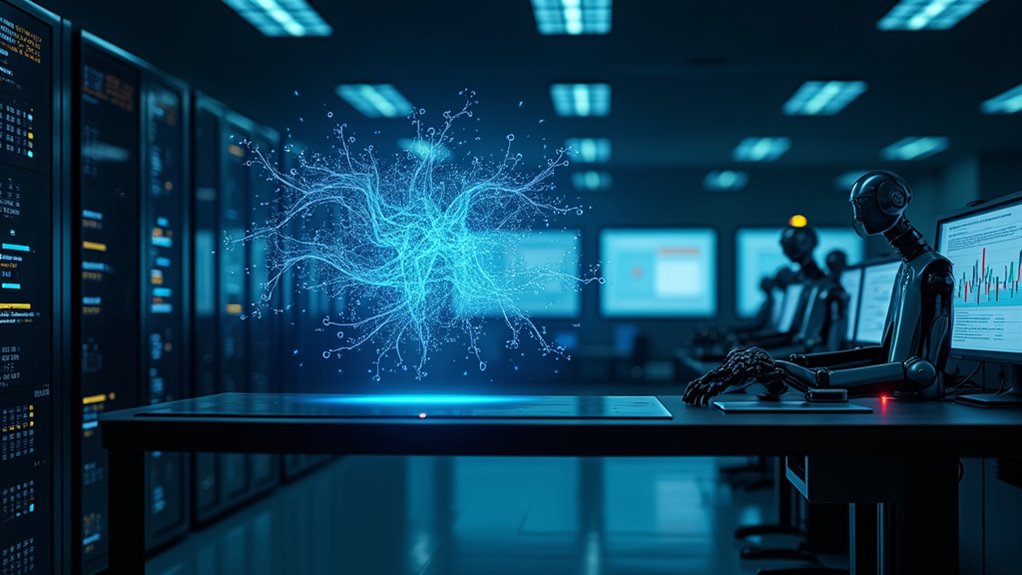AI’s ethical risks are hitting harder than expected. Machine learning systems perpetuate societal biases while hoarding personal data like digital squirrels. Job displacement looms as AI creeps into creative and analytical roles. The “black box” nature of AI decisions breeds distrust, and these energy-hungry systems gobble electricity like there’s no tomorrow. From privacy violations to environmental impact, AI’s dark side raises serious questions about humanity’s tech-driven future. The deeper you look, the messier it gets.
Nearly every major advancement in artificial intelligence brings both groundbreaking possibilities and nerve-wracking ethical concerns. The reality is, AI systems are far from perfect – they’re actually pretty biased. These systems inherit prejudices from their training data, perpetuating and sometimes amplifying existing social inequalities. It’s like teaching a robot using a textbook written by people with outdated views. Not great. Studies show that over 50% of executives express serious concerns about AI’s ethical risks and reputation impacts.
Privacy is another massive headache. AI systems are data-hungry monsters, gobbling up personal information like kids in a candy store. They collect, process, and store vast amounts of data, often without users fully understanding what they’re giving up. And let’s be honest – most people click “accept” on privacy policies without reading a single word. With regulations like GDPR trying to keep up, it’s a constant game of digital cat and mouse. Companies developing large language models must ensure that PII is removed to maintain compliance with privacy laws.
AI feasts on our personal data while we blindly accept, turning privacy into a high-stakes game of hide and seek.
The workplace is experiencing its own AI-driven upheaval. Jobs are disappearing faster than donuts in a police station. Knowledge workers who thought they were safe from automation? Think again. The rise of generative AI means even creative and analytical roles are at risk. Workers are scrambling to learn new skills like prompt engineering – whatever that means – just to stay relevant. While AI safety measures remain crucial, the benefits to scientific research and healthcare are undeniable.
Then there’s the infamous “black box” problem. AI makes decisions, but nobody really knows how. Try asking an AI system to explain its reasoning, and you might as well be asking a cat to explain quantum physics. This lack of transparency creates serious trust issues, especially when AI is making important decisions about people’s lives.
Environmental concerns round out the top ethical risks. These powerful AI systems are energy hogs, consuming electricity at alarming rates. Training a single large language model can use as much energy as several American households do in a year.
It’s a classic case of technology advancing faster than our ability to manage its consequences. While AI promises to solve many of humanity’s problems, it’s creating plenty of new ones along the way.









